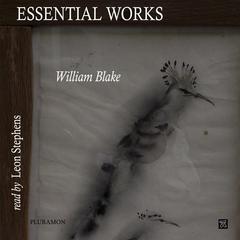 Play Audiobook Sample
Play Audiobook Sample
Songs of Innocence Audiobook
 Play Audiobook Sample
Play Audiobook Sample
Quick Stats About this Audiobook
Total Audiobook Chapters:
Longest Chapter Length:
Shortest Chapter Length:
Average Chapter Length:
Audiobooks by this Author:
Publisher Description
Songs of Innocence and of Experience is an illustrated collection of poems by William Blake. It appeared in two phases. A few first copies were printed and illuminated by William Blake himself in 1789; five years later he bound these poems with a set of new poems in a volume titled Songs of Innocence and of Experience Shewing the Two Contrary States of the Human Soul.
Download and start listening now!
Songs of Innocence Listener Reviews
Be the first to write a review about this audiobook!
About William Blake
William Blake (1757–1827) was an English poet, artist, and printmaker. Although largely unrecognized during his lifetime, he is now considered a seminal figure in the history of both the poetry and visual arts of the Romantic Age. He is held in high regard by critics for his expressiveness and creativity and for the philosophical and mystical undercurrents within his work. He produced a diverse and symbolically rich body of works that embraced the imagination as “the body of God” or “human existence itself.” Reverent of the Bible but hostile to the Church of England, he was influenced by the ideals and ambitions of the French and American revolutions, as well as by such thinkers as Emanuel Swedenborg.










